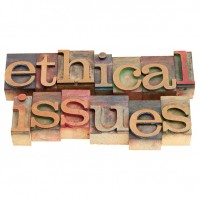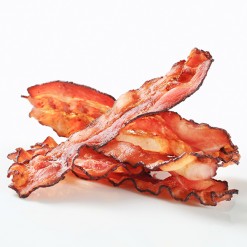

There are many different reasons behind why people decide to become a vegan. One main reason is for the animals. Many people have emotional attachments with animals and believe that they have the right to freedom and a full life, and thus refuse to eat them or use animal products. Avoiding animal products is also one way you can take a stand against animal exploitation and animal cruelty. Recently, more people have decided to become vegan for health benefits. Studies have shown that a vegan diet has many more health benefits compared to the average western diet, including younger looking skin and increased energy. Plant-based diets are also rich in calcium, iron, protein, and other essential minerals and vitamins. Vegan diets tend to be packed with antioxidants, high in fibre and low in saturated fat which helps counter cancer, diabetes, heart disease, and obesity. A vegan diet also helps conserve the environment. The production of meat and other animal products places a heavy burden on the environment. The feed these animals need alone is a huge contributor to species extinction, habitat loss, and deforestation. Considerably lower quantities of water and crops are required to sustain a vegan diet, which makes switching to a vegan diet an effective way to reduce your carbon footprint and overall impact on the environment. While many people think switching to a vegetarian diet is enough, they fail to realize the suffering caused by the dairy and egg industry as well. The production of dairy products results in the death of many male calves as well as the slaughter of cows when their milk production decreases. Even free range or ethical eggs involve the killing of male chicks when they are only a day old.
 So how do you decide if a vegan diet is right for you? Before you decide to make the switch, you need to go through the pros and cons, and determine if it is truly something you want to try. Vegan diets help lower cholesterol and blood pressure, which is a huge health benefit. If you have high cholesterol or blood pressure, you may want to strongly consider switching to a vegan diet. This can cause serious heart problems down the road, so making a change in diet quickly could help save you later in life. A vegan diet also helps increase your antioxidant intake because you are eating wholesome foods like whole grains, beans, fruits, and vegetables. These food items are packed with minerals, vitamins, and dietary fiber. Lastly, a vegan diet also helps promote self-control. You will need a lot of self-control to stick to a vegan diet, and this self-control can be transitioned to other areas of your life. There are several drawbacks to a vegan diet, however. For starters, it is a huge change in your diet – essentially, you are eliminating all products that come from an animal, including all meat, eggs, and dairy. Many people find that extremely difficult. It can also affect you negatively if you have a pre-existing medical condition like diabetes or osteoporosis. Many people who switch to a vegan diet find it difficult to go out to eat with friends. While many restaurants offer vegetarian dishes, not many offer true vegan choices. You almost always have to carry with you vegan snacks so you aren’t stuck eating bread all night.
So how do you decide if a vegan diet is right for you? Before you decide to make the switch, you need to go through the pros and cons, and determine if it is truly something you want to try. Vegan diets help lower cholesterol and blood pressure, which is a huge health benefit. If you have high cholesterol or blood pressure, you may want to strongly consider switching to a vegan diet. This can cause serious heart problems down the road, so making a change in diet quickly could help save you later in life. A vegan diet also helps increase your antioxidant intake because you are eating wholesome foods like whole grains, beans, fruits, and vegetables. These food items are packed with minerals, vitamins, and dietary fiber. Lastly, a vegan diet also helps promote self-control. You will need a lot of self-control to stick to a vegan diet, and this self-control can be transitioned to other areas of your life. There are several drawbacks to a vegan diet, however. For starters, it is a huge change in your diet – essentially, you are eliminating all products that come from an animal, including all meat, eggs, and dairy. Many people find that extremely difficult. It can also affect you negatively if you have a pre-existing medical condition like diabetes or osteoporosis. Many people who switch to a vegan diet find it difficult to go out to eat with friends. While many restaurants offer vegetarian dishes, not many offer true vegan choices. You almost always have to carry with you vegan snacks so you aren’t stuck eating bread all night.
